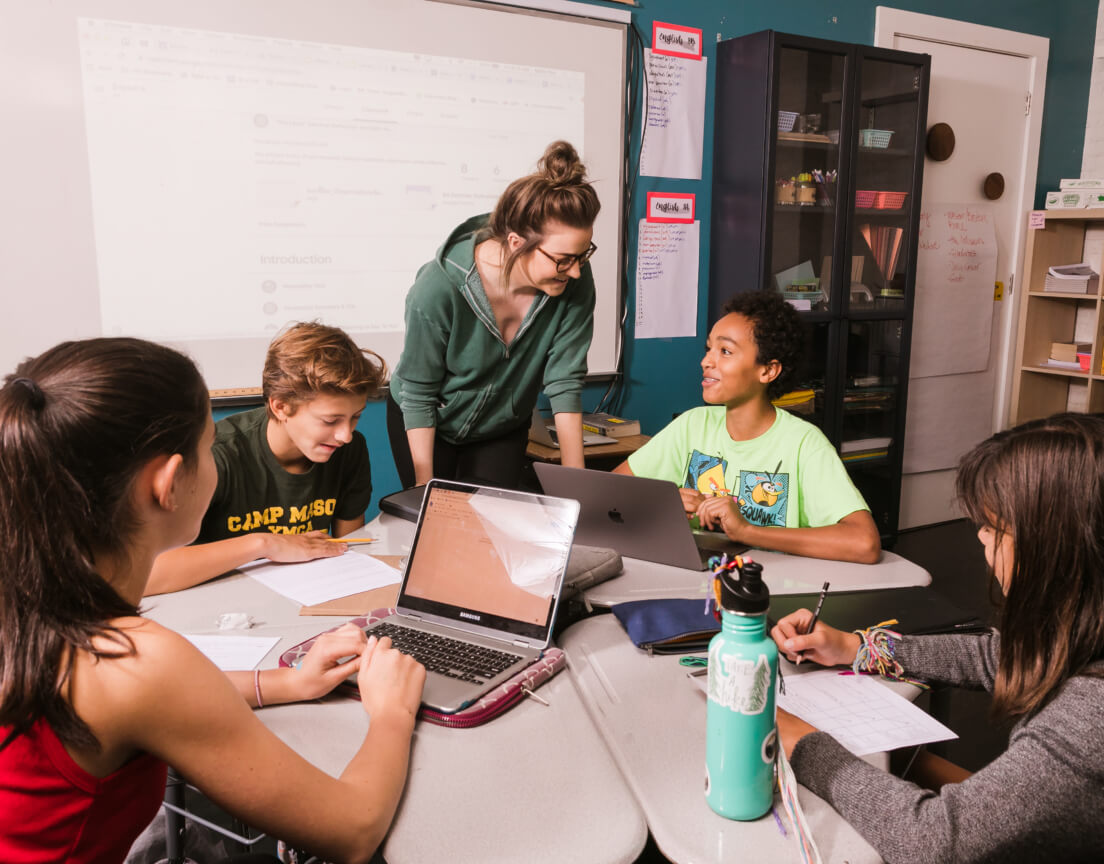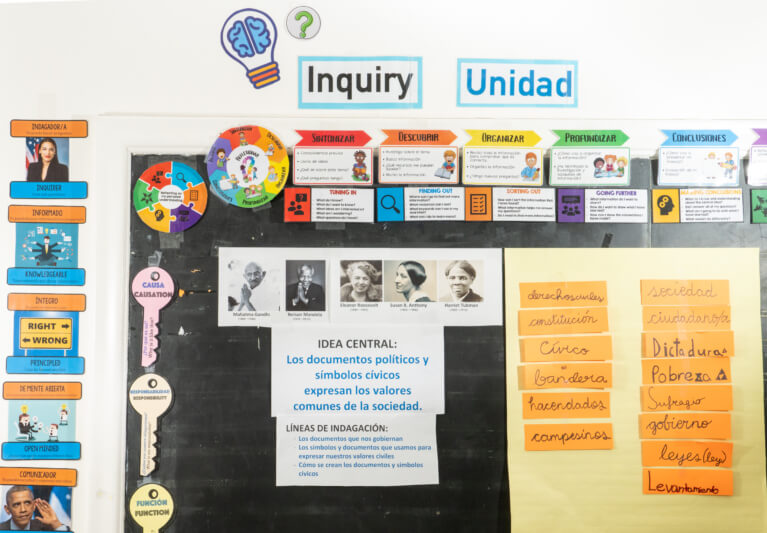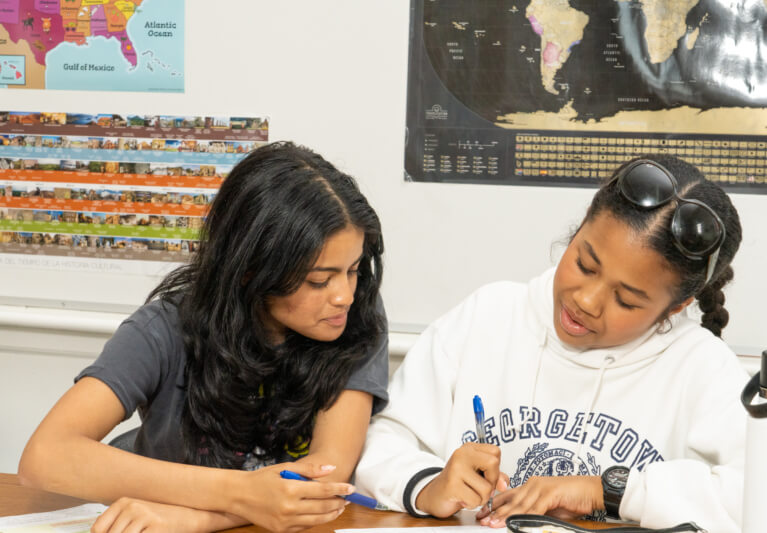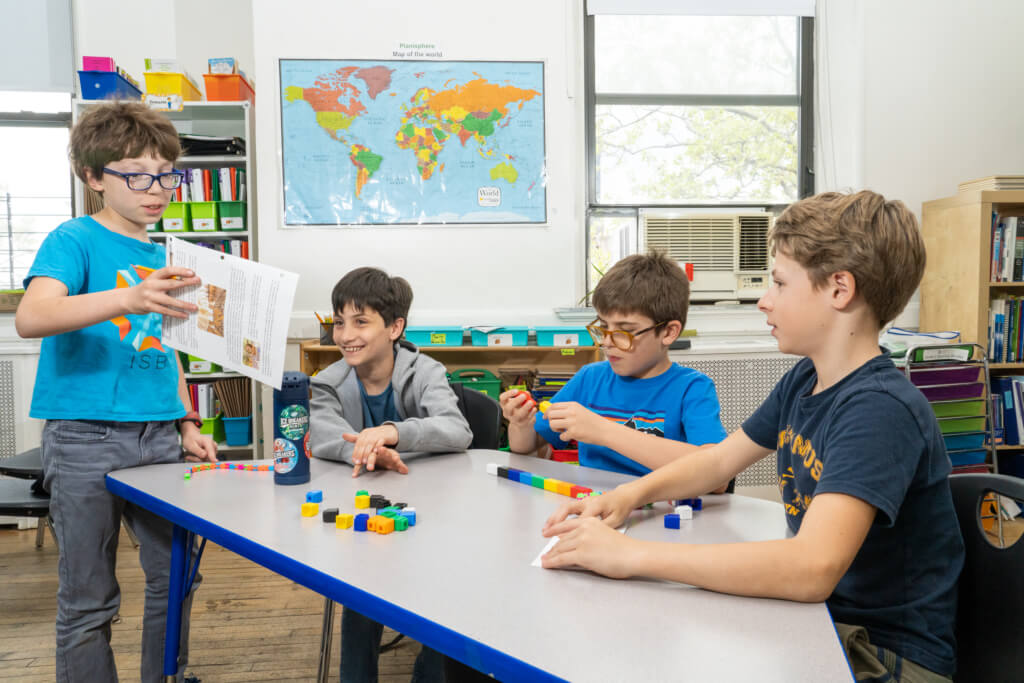The International Baccalaureate (IB) aims to develop inquiring, knowledgeable, and caring young people who – recognizing our common humanity and shared guardianship of the planet – help to create a better and more peaceful world through intercultural understanding and respect. As an IB world school, International School of Brooklyn is part of a global network of over 5,400 schools across 159 countries who share this mission and educational philosophy. ISB’s program comprises the Primary Years Programme in grades Pre-K 3 through 5th Grade and the Middle Years Programme in 6th-8th Grade.

The International Baccalaureate enables students to direct their own learning pathway and develop the skills and confidence they need to thrive and make a lasting difference. It empowers teachers as the architects of learning excellence, working alongside engaged colleagues in a rewarding career supported by a strong global network.
This educational framework is unique in that it emphasizes learning concepts rather than topics, aiding students in learning how they apply across all cultures in various ways. Information and facts will always be readily available to those who need them, whereas learning how to learn is a lifelong skill that enriches the way that students engage with the world around them.
Language learning and multilingualism support ISB students in understanding their own cultures and those of others and help them develop different communication styles. The IB emphasizes the importance of developing strong communication skills that are not limited to different languages but include the realms of mathematics, sciences, arts, etc.


The PYP curriculum is unique in that it addresses real-world problems and looks at them through various lenses. The PYP’s transdisciplinary approach motivates our students to learn traditional subject area skills, because they can perceive—in real time—how their scholarship will lead them to real-world solutions.
In the Preschool and Lower School years, units of inquiry interweave core subject areas such as mathematics, language arts, science, social studies, arts, and physical education. The six transdisciplinary themes that guide the PYP units of inquiry and compose a year of study are: Who we are, Where we are in place in time, How we express ourselves, How the world works, How we organize ourselves, and Sharing the planet. Through the lens of a central idea that is engaging, relevant, challenging, significant, and concept-driven, each unit is paired with three or four lines of inquiry, which further clarify the central idea and define the scope of inquiry.


The MYP aims to develop active learners and internationally-minded young people who can empathize with others and pursue lives of purpose and meaning. The program is a challenging educational framework that encourages students to make practical connections between their various areas of studies and the real world. The way our students learn empowers them to inquire into a wide range of issues and ideas of local, national, and global significance and allows them to develop the knowledge, attitudes and skills they need in order to manage complexity and take responsible action for the future.
The MYP uses structured inquiry as a vehicle for learning. Six global contexts — identities and relationships; orientation in space and time; personal and cultural expression; scientific and technical innovation; globalization and sustainability; fairness and development – provide the framework for students’ construction of knowledge. These global contexts are closely linked with the six transdisciplinary themes of the PYP. The six concepts – in combination with subject-specific related concepts – provide a structure for students to understand new ideas, acquire essential skills, develop attitudes, and take action in a socially responsible way. The concepts and contexts serve as a framework for teacher unit planning and student guidance based on a statement of inquiry. Teachers and students are guided by these contexts as they also explore overarching key concepts which can be linked to each of the eight subject areas in the MYP.

Across all grades, ISB is committed to the development of students according to the IB learner profile. The learner profile describes a broad range of human capacities and responsibilities that go hand in hand with academic success, and implies a commitment to help all members of the school community to learn to respect themselves, others, and the world around them. As IB learners we strive to be:
Inquirers – nurture our curiosity, developing skills for inquiry and research. We know how to learn independently and with others. We learn with enthusiasm and sustain our love of learning throughout life.
Knowledgeable –We develop and use conceptual understanding, exploring knowledge across a range of disciplines. We engage with issues and ideas that have local and global significance.
Thinkers –We use critical and creative thinking skills to analyze and take responsible action on complex problems. We exercise initiative in making reasoned, ethical decisions.
Communicators – We express ourselves confidently and creatively in more than one language and in many ways. We collaborate effectively, listening carefully to the perspectives of other individuals and groups.
Principled – We act with integrity and honesty, with a strong sense of fairness and justice, and with respect for the dignity and rights of people everywhere. We take responsibility for our actions and their consequences.
Open-Minded – We critically appreciate our own cultures and personal histories, as well as the values and traditions of others. We seek and evaluate a range of points of view, and we are willing to grow from the experience.
Caring – We show empathy, compassion and respect. We have a commitment to service, and we act to make a positive difference in the lives of others and in the world around us.
Risk-Takers – We approach uncertainty with forethought and determination; we work independently and cooperatively to explore new ideas and innovative strategies. We are resourceful and resilient in the face of challenges and change.
Balanced – We understand the importance of balancing different aspects of our lives – intellectual, physical, and emotional – to achieve well-being for ourselves and others. We recognize our interdependence with other people and with the world in which we live.